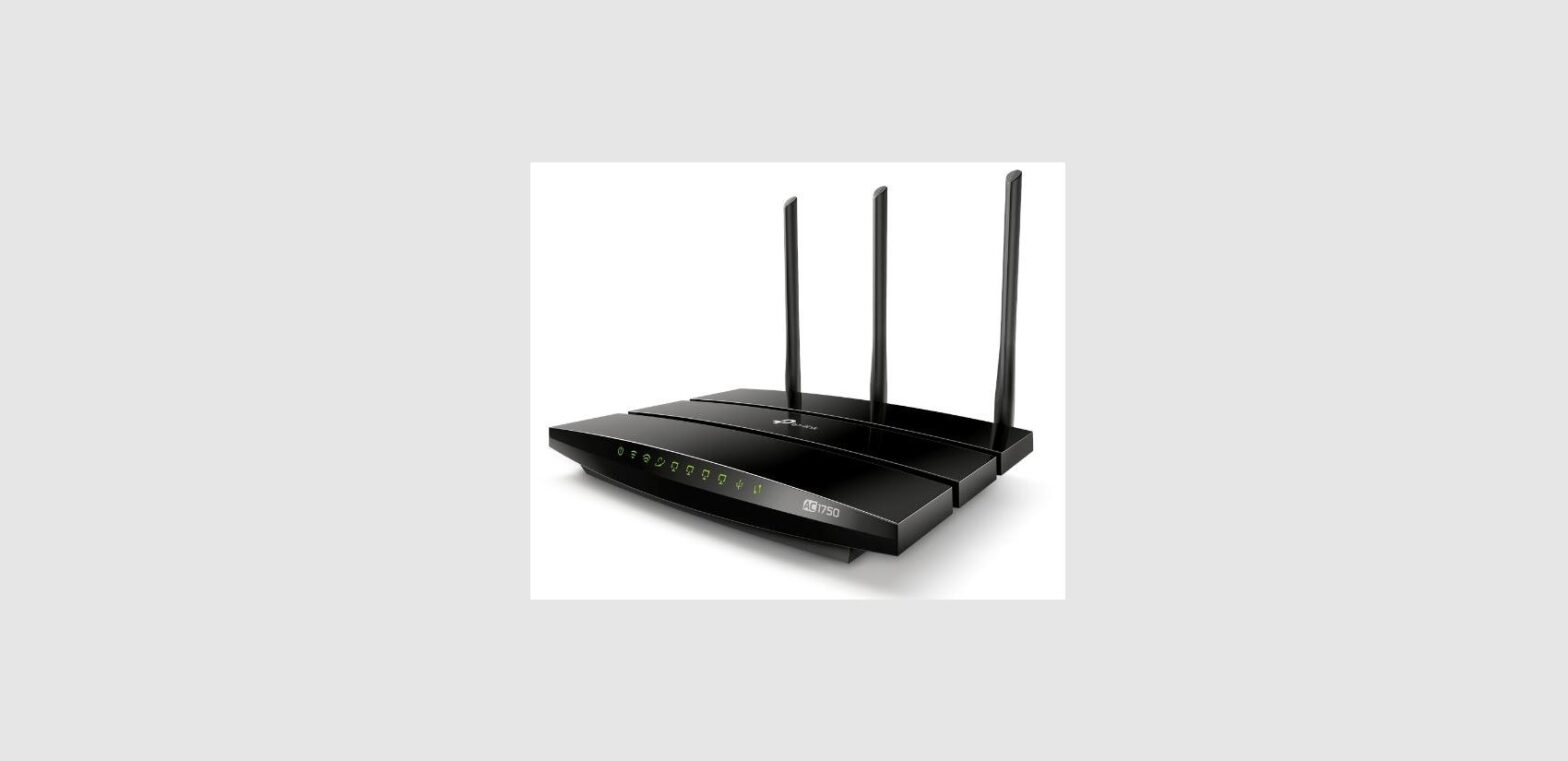TP-Link AC1750 Smart WiFi Router (Archer A7) Setup and Admin Login

TP-Link AC1750 Smart WiFi Router (Archer A7) Setup and Admin Login
Quick Installation Guide
AC1750 Wireless Dual Band Gigabit Router
Archer C7
Connect the Hardware
If your internet connection is through an Ethernet cable directly from the wall instead of through a DSL/Cable/Satellite modem, connect the Ethernet cable to the router’s Internet port, and then follow Step 1, 5 and 6 to complete the hardware connection.
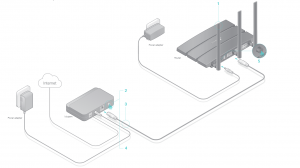
- Install the antennas.
- Turn off the modem, and remove the backup battery if it has one.
- Connect the modem to the router’s Internet port with an Ethernet cable.
- Turn on the modem, and then wait about 2 minutes for it to restart.
- Connect the power adapter to the router and turn on the router.
- Verify that the following LEDs are on and solid to confirm the hardware is connected correctly.



 Power On 2.4 GHz On 5 GHz On Internet On (Green or Orange)
Power On 2.4 GHz On 5 GHz On Internet On (Green or Orange)
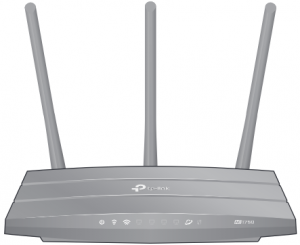
Note: If the 2.4 GHz LED and 5 GHz LED are off, press and hold the WPS/Wi-Fi button on the back for more than 2 seconds. Both the LEDs should turn solid on.
Configure the Cloud Router
Method ONE: Via TP-Link Tether App
1. Download the Tether app.

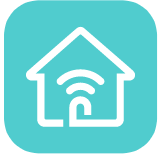
2. Connect your smartphone to the router.
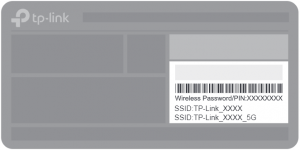 The default wireless network names (SSIDs) and password are printed on the label at the bottom of the router.
The default wireless network names (SSIDs) and password are printed on the label at the bottom of the router.
3. Connect the router to the internet.

A Launch the Tether app. Select Archer C7 from the local device list.B Create a login password and follow the steps to connect to the internet
4. Register the TP-Link Cloud service.
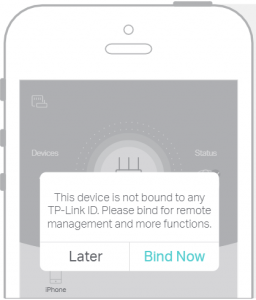
To enjoy a more complete service from TP-Link, tap Bind Now when prompted and follow the instructions to register and bind a TP-Link ID to your cloud router.
With TP-Link ID, you can conveniently manage your home network from your smartphone or tablet via the Tether app, no matter where you find yourself.
![]() Enjoy the internet!
Enjoy the internet!
Method TWO: Via Web Browser
1. Connect your device to the router (wired or wireless).
- Wired
Turn off the Wi-Fi on your computer and connect the devices as shown below.
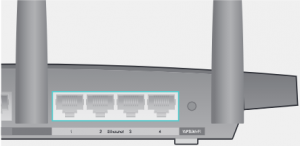
![]()

- Wireless
a Find the SSID and wireless password printed on the label of the router.
b Click the network icon of your computer or go to Wi-Fi settings of your smart device, and then select the SSID to join the network.
Computer
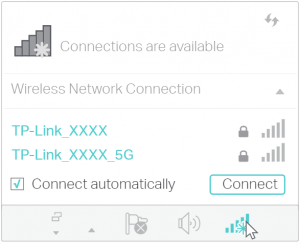
Smart Device
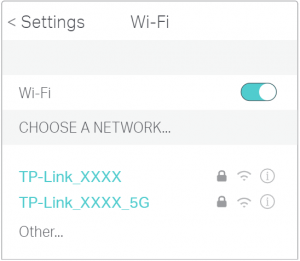
2. Connect the router to the internet.
A Launch a web browser, and enter http://tplinkwifi.net or http://192.168.0.1 in the address bar. Create a login password and then click Let’s Get Started.
Note: If the login window does not appear, please refer to Q1 of Need Help? in this guide.
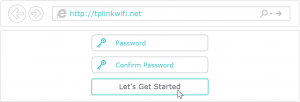
B Follow the step-by-step instructions to set up the internet connection and register the TP-Link Cloud service.

 Enjoy the internet!
Enjoy the internet!
USB Applications
With the dual USB ports, it’s easy to share printers, files and media with multiple devices.

 Local Storage SharingShare files from the USB drive with devices on your home network
Local Storage SharingShare files from the USB drive with devices on your home network
 Remote AccessAccess the USB drive when you are away from home
Remote AccessAccess the USB drive when you are away from home
 Printer SharingShare a printer with multiple computers connected to the router
Printer SharingShare a printer with multiple computers connected to the router
 Media ServerPlay media from the USB drive on your computer and smart devices
Media ServerPlay media from the USB drive on your computer and smart devices
To learn more about the USB applications, visithttp://www.tp-link.com/app/usb, or simply scan the QR code.
TP-Link Cloud Service
TP-Link Cloud service provides a better way to manage your cloud devices. For example:
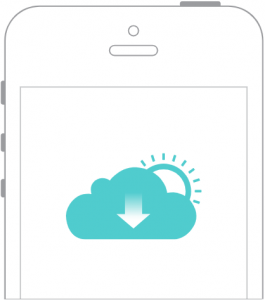
Remote ManagementEasily manage your home network when you are out and about via the Tether app on your smartphone or tablet.
Timely Upgrade NotificationsKeep informed of the latest firmware updates, ensuring your router stays at its best.
One for AllManage multiple TP-Link Cloud devices, all from a single TP-Link ID.
You can set up and enjoy cloud functions via the Tether app or through the web management page at http://tplinkwifi.net.
To learn more about TP-Link Cloud service and other useful features supported by the router (including Guest Network, Parental Controls, Access Control and more), please refer to the User Manual at www.tp-link.com.
Need Help?
Q1. What should I do if I cannot access the web management page?
- If the computer is set to a static IP address, change its settings to obtain an IP address automatically.
- Verify that http://tplinkwifi.net is correctly entered in the web browser. Alternatively, enter http://192.168.0.1 or http://192.168.1.1 in the web browser and press Enter.
- Use another web browser and try again.
- Reboot your router and try again.
- Disable and enable the network adapter being used
Q2. What should I do if I cannot access the internet?
- Check if the internet is working normally by connecting a computer directly to the modem using an Ethernet cable. If it is not, contact your internet service provider.
- Log in to the web management page of the router, and go to the Basic > Network Map page to check whether the internet IP address is valid or not. If it is, please run the Quick Setup again; otherwise, check the hardware connection.
- Reboot your router and try again.
- For cable modem users, log in to the web management page of the router. Go to Advanced > Network > Internet > MAC Clone, click Use Current Computer MAC Address and click Save. Then reboot both the modem and the router.
Q3. How do I restore the router to its factory default settings?
- With the router powered on, use a pin to press and hold the Reset button on the back until the Power LED blinks.
- Log in to the web management page of the router, go to Advanced > System Tools > Backup & Restore, and click Factory Restore. The router will restore and reboot automatically.
Q4. What should I do if I forget my web management page password??
- If you are using a TP-Link ID to log in, click Forgot password on the login page and then follow the instructions to reset it.
- Alternatively, press and hold the Reset button on the back of the router until the Power LED blinks to reset it, then visit http://tplinkwifi.net to create a new login password.
Q5. What should I do if I forget my wireless network password?
- If you have not changed the default wireless password, it can be found on the label at the bottom of the router.
- Connect a computer directly to the router using an Ethernet cable. Log in to the router’s web management page at http://tplinkwifi.net, and go to Basic > Wireless to retrieve or reset your wireless password.
![]() For technical support and other information, please visit
For technical support and other information, please visit
http://www.tp-link.com/support, or simply scan the QR code. 
TP-Link AC1750 Smart WiFi Router (Archer A7) Setup and Admin Login – TP-Link AC1750 Smart WiFi Router (Archer A7) Setup and Admin Login –
FAQ’S
Yes, but you will need to disable the router function of the modem.
The Archer A7 is essentially the same as the Archer C7, but it has the ability to control some of the router’s main features with Amazon Alexa. It also has one less USB-A 2.0 port on the back.
How to Setup TP-Link AC1750 Without a Modem? It’s easy. Just set it up as you normally would. It will require you to use a browser on the device you’re using, but don’t worry, only router connection is necessary.
Connects Up-to 50 DevicesWhether it’s your laptop, smartphone or your tablet that needs a connection, the Archer A7 can deliver an uninterrupted connection to all.
Power on your router and computer first and then modem.Log into the router’s web-based management page.Configure WAN Connection Type.Enter your PPPoE username and password which are provided by your ISP.Click Save to save your settings, then the router will connect to Internet after a while.
Your modem is a box that connects your home network to the wider Internet. A router is a box that lets all of your wired and wireless devices use that Internet connection at once and also allows them to talk to one another without having to do so over the Internet.
You need two devices for cable internet, a cable modem and a WiFi router/access point (this TP-Link device).
For example, if you recently upgraded your internet plan to a 400 Mbps speed but still use an N300 router, your wireless connections automatically lose 100 Mbps of bandwidth. Why? Because the router only supports up to 300 Mbps. Your wired connections, however, may not be affected.
Plug your TV directly into the internet router via an Ethernet cable. Your TV must be close to your router. When you’re connecting multiple devices, make sure your connection stays strong by opting for a powerful beamforming router.
With a 4G Wi-Fi router or Mobile Wi-Fi, you can insert a SIM card to enjoy fast, stable Wi-Fi. Find the SIM card slot on the back panel. Get a SIM card (Micro or Nano) that fits the slot.
Go to the router’s Network setup or LAN setup area and look for a section with “DHCP” in its title, and then disable DHCP if it’s on. Connect the bridge router to the main router. If both routers have WPS buttons (most do these days), you can press that button on both routers to connect them wirelessly.
In the lab, a TP-Link SOHO wireless router can support more than 64 clients simultaneously. But in a real world scenario, to ensure a stable network environment, we recommend you and your family connect about 25 devices to a standard Wi-Fi 5 router.
VIDEO
[xyz-ips snippet=”download-snippet”]

